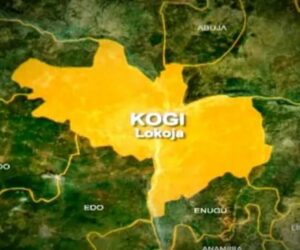Labour Party’s 2023 presidential candidate, Peter Obi, has raised concerns that the rise of certificate forgery in Nigeria risks making criminal behavior a norm.
Mr Obi’s warning comes in the wake of reports that a minister in President Bola Tinubu’s cabinet admitted he never obtained a university degree.
Obi called for urgent and systematic measures, emphasizing that any official found guilty of falsifying academic credentials must face prosecution.
Advertisement
He Stated the remarks on Monday in response to an investigative report by PREMIUM TIMES, which disclosed that the University of Nigeria, Nsukka (UNN), rejected the Bachelor of Science degree held by Minister of Science, Technology, and Innovation, Uche Nnaji, stating that he never completed his studies there and was never issued a certificate.
READ MORE : Imo Govt. Begins Payment Of ₦104,000 New Minimum Wage To Workers
Court documents submitted before Justice Hauwa Yilwa of the Federal High Court in Abuja reportedly confirmed that Nnaji acknowledged that UNN never awarded him a degree certificate.
The report further noted that Nnaji filed a lawsuit against the Minister of Education, the National Universities Commission (NUC), UNN, its Vice-Chancellor Professor Simon Ortuanya, the Registrar, former Acting Vice-Chancellor Professor Oguejiofor Ujam, and the university’s Senate.
Obi criticized the conduct of public officials, stating that those “who are supposed to be exemplary” have instead become “the very source of the nation’s decay.”
He warned that dishonest behavior by public leaders corrodes the moral foundation for young Nigerians who look up to them.
Sharing an international perspective, Obi recounted that in Indonesia, authorities immediately disqualify and prosecute candidates who present forged or falsified qualifications.
He compared this with Nigeria, stating, “Though the laws are similar, the Independent National Electoral Commission does not verify certificates before elections, ignores complaints of forgery, and courts often dismiss such criminal cases as ‘pre-election matters’ without delivering appropriate punishment.”
Obi added, “INEC does not investigate these serious offences even after elections. Another alarming issue is how dishonest individuals bypass multiple scrutiny layers—security, parliament, and other government institutions. Even worse, many of them swear affidavits in court attesting to the authenticity of their documents.”
Looking ahead to the 2027 general elections, Obi proposed that all political aspirants submit their academic certificates to the electoral body immediately after party primaries.
He concluded, “We are now preparing for the 2027 general elections. INEC will have sufficient time to examine past complaints regarding certificate forgery and false academic claims.”








